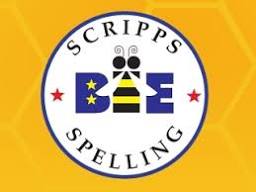Today, we practiced identifying Leads in sample introduction paragraphs. Then, we started practicing writing our own introductory paragraphs
using some of the different lead types. Your paragraph is due on Tuesday, 12/16 (A day classes) and Wednesday, 12/17 (B day classes). Use the slides below to help you draft your own.
A place to post updates about the eighth grade language arts classes at LaVilla. Look here for assignments, contests, pictures, links, and recaps of what we've been doing in class.
Friday, December 12, 2014
Wednesday, December 10, 2014
Research for your Position Paper
In class, we recently used Achieve3000 to research many different issues. You needed to do the activity questions for at least one article listed here. However, you need to read at least two articles in your topic area to find evidence and reasons to support your position.
After you do your research, take notes, and complete an activity (8 questions), then make be prepared to turn this sticky note in to your teacher (if you didn't already turn it in.)
After you do your research, take notes, and complete an activity (8 questions), then make be prepared to turn this sticky note in to your teacher (if you didn't already turn it in.)
Monday, November 24, 2014
Spelling Bee
Our in-class spelling bees got underway during the week of Thanksgiving. The final rounds in some classes will happen after we return. If you are one of my two finalists, the school spelling bee will be on the last day before Winter Break.

Looking to study for the Spelling Bee in your class (or at the SCHOOL level)? Download the full set of study words here.
Looking to study for the Spelling Bee in your class (or at the SCHOOL level)? Download the full set of study words here.
Wednesday, October 8, 2014
The Smile and a QUIZ!
There will be a quiz on October 9th and October 10th covering all the Bradbury stories and the signposts we've learned so far. Use the blog to re-read all the stories if needed, as well as review the signposts. Here's a link to "The Smile" for those of you who need to finish your close re-reading and your notes in your composition book or for those of you who need to re-read it for the quiz.
Friday, September 26, 2014
There Will Come Soft Rains
Here is a copy of There Will Come Soft Rains if you need to finish your close re-reading. Don't forget to track what is happening again and again.You will use your notes to help you develop your theme statement:
Here's your text-dependent question:
Here's your text-dependent question:
Look at the poem on page 326. Write to
explain how the poem illustrates the theme of the story. Use evidence from the
story as a whole to support the theme.
Thursday, September 25, 2014
You can improve your Lexile!
I recently shared Lexile (reading) level scores with you. Many of you
wanted to know how you can improve your score. This year, we have
access to Achieve3000, a new program that allows you to read articles
and answer questions. When you practice these articles, I can see the
results and the system can recalculate your Lexile level, based on how
well you are doing.
Log in here to practice at home:
Go to https://portal.achieve3000.com
Log in here to practice at home:
Go to https://portal.achieve3000.com
Remember that your
username
is “s” plus the student ID number. Example:
s1234568 or s01234567
Your
password
is the district number “16” plus the first four letters of your last name, plus
two digits for
your birthday
month and two digits for the day. Example:
16brow0304
Thursday, September 18, 2014
Fever Dream
In class on Thursday and Friday, we worked on our TDQ responses and had writing conferences with the teacher. If you were absent, please start by re-reading the story (not just skimming), and make notes of quotes and examples to use in your paragraph. Then, write a response that answers the questions with a thesis statement, evidence from the text, and your own explanation to show how you understood what really happened to Charles.
Here are some tips from our lesson:
Do you need a copy if the story to finish your TDQ from class? Here's a link to a version you can use. Click here: Fever Dream
Here were the three text dependent questions to choose from.
How is it graded?
Here are some tips from our lesson:
Do you need a copy if the story to finish your TDQ from class? Here's a link to a version you can use. Click here: Fever Dream
Here were the three text dependent questions to choose from.
How is it graded?
Tuesday, September 9, 2014
New standards: What are they?
The PTA has put together a user friendly set of brochures about the Common Core Standards. In Florida, we use the Florida Standards but they are largely modeled after the Common Core State Standards (or CCSS). Here's a summary of the highlights.
A Sample of What We Will Be Working on in 8th Grade
■ Citing the evidence that most strongly supports an analysis of what is explicitly stated and/or implied from a book, article, poem, or play
■ Analyzing where materials on the same topic disagree on matters of fact, interpretation, or point of view
■ Building writing around strong central ideas or points of view; supporting the ideas with sound reasoning and evidence, precise word choices, smooth transitions, and different sentence structures
■ Planning and conducting research projects that include several steps and use many credible and documented print and digital sources
■ Analyzing the purpose of information presented in diverse media (e.g., print, TV, web) and evaluating its social, political, or commercial motives
■ Presenting findings and claims to others, emphasizing key points with relevant evidence and sound reasoning, adapting speech to the audience and the formality of the setting, and
responding to questions and comments with relevant observations and ideas
■ Using strong, active verbs to create a clear picture for the reader (e.g., walk, skip, meander, lurch, limp)
■ Interpreting figures of speech (e.g., irony, puns) and developing a large vocabulary of general academic words and phrases
Thursday, May 8, 2014
Friday, May 2, 2014
Tuesday, April 1, 2014
The Student has become the Teacher! Jigsaw Poetry!
Our classes are just wrapping up the unit of teaching poems in the jigsaw style. We've studied four poems and will now take a test to determine the effectiveness of our teaching and learning. If you need a little extra review, follow these links to the original poems.
Man Listening to Disc
The Summer Day
Speech to the Young: Speech to the Progress Toward (among them Nora and Henry III)
Valentine
You can read these and create your own TPCASTT form using our original. Click the links to find what you need and prepare for your test. There are a few questions on each poem, plus a poem you have not seen before to test your TPCASTT/analysis skills.
Man Listening to Disc
The Summer Day
Speech to the Young: Speech to the Progress Toward (among them Nora and Henry III)
Valentine
You can read these and create your own TPCASTT form using our original. Click the links to find what you need and prepare for your test. There are a few questions on each poem, plus a poem you have not seen before to test your TPCASTT/analysis skills.
Wednesday, March 5, 2014
The Art of the Metaphor
As we're crafting our poems, we're really working hard on creating at least one strong, purposeful metaphor for our poem. To do this, we're studying the Ted-Ed Video called The Art of the Metaphor. (http://ed.ted.com/lessons/jane-hirshfield-the-art-of-the-metaphor). Here's another version of the link, if the others don't work for you. We'll also take a short exit/entrance slip assessment on the concepts in the video and our lesson. Feel free to watch the video several times as your review for the assessment. (We watched it many times while creating the lesson.) The assessment will be worth ten points.
Once students draft their poems, we're expecting one strong metaphor. This could be a metaphor to show an experience from your life, a metaphor to show what your life has been like, a metaphor that shows an abstract feeling you've experienced (love, sorrow, happiness), or a metaphor to show a place you've been, like the beach but shown in a different way.
Wondering about the requirements for the full poem? See the "A" section on the rubric below. Here's the rubric and a link to the full file.

Once students draft their poems, we're expecting one strong metaphor. This could be a metaphor to show an experience from your life, a metaphor to show what your life has been like, a metaphor that shows an abstract feeling you've experienced (love, sorrow, happiness), or a metaphor to show a place you've been, like the beach but shown in a different way.
Wondering about the requirements for the full poem? See the "A" section on the rubric below. Here's the rubric and a link to the full file.
Subscribe to:
Comments (Atom)






















